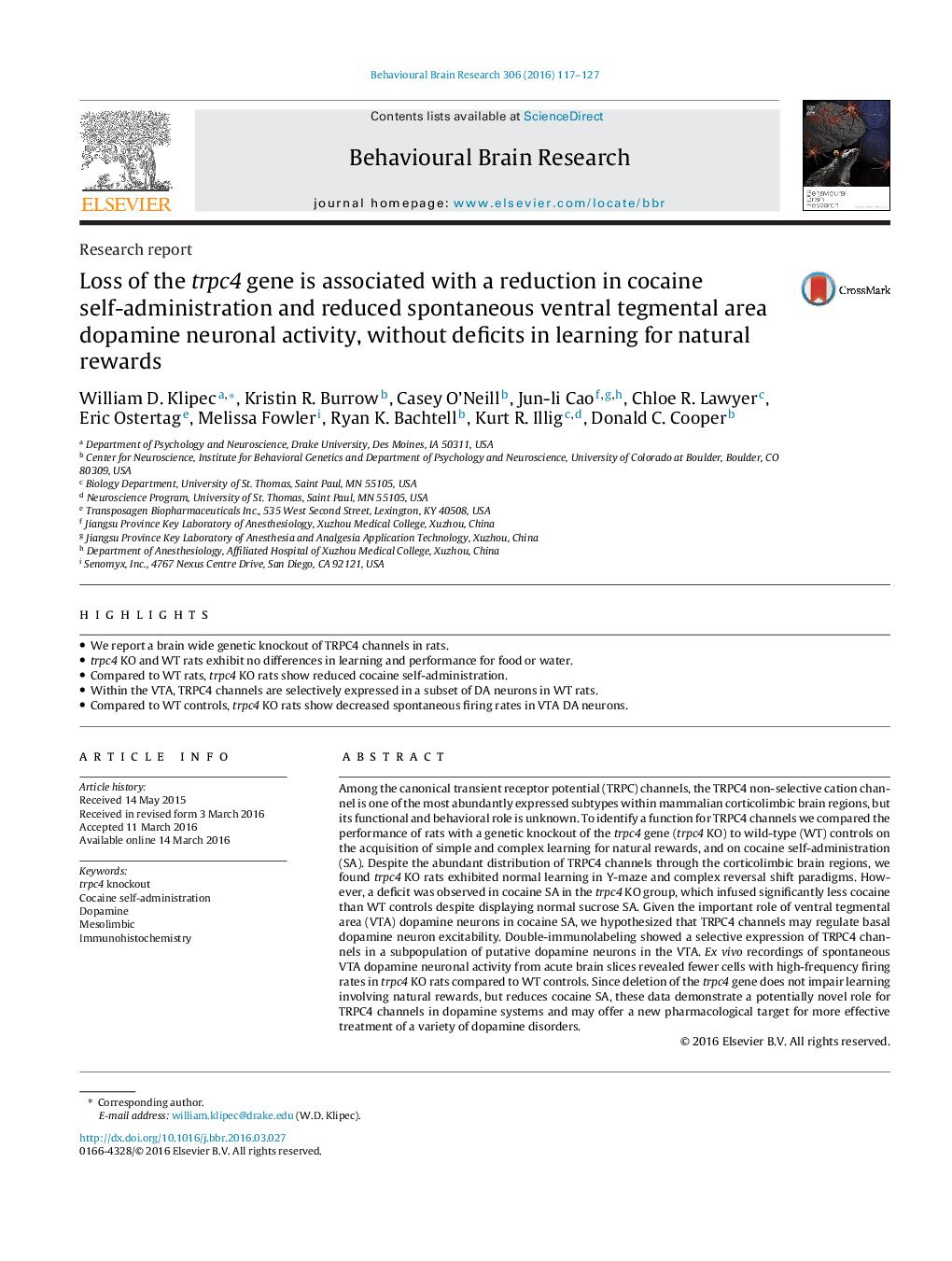| Article ID | Journal | Published Year | Pages | File Type |
|---|---|---|---|---|
| 6256088 | Behavioural Brain Research | 2016 | 11 Pages |
â¢We report a brain wide genetic knockout of TRPC4 channels in rats.â¢trpc4 KO and WT rats exhibit no differences in learning and performance for food or water.â¢Compared to WT rats, trpc4 KO rats show reduced cocaine self-administration.â¢Within the VTA, TRPC4 channels are selectively expressed in a subset of DA neurons in WT rats.â¢Compared to WT controls, trpc4 KO rats show decreased spontaneous firing rates in VTA DA neurons.
Among the canonical transient receptor potential (TRPC) channels, the TRPC4 non-selective cation channel is one of the most abundantly expressed subtypes within mammalian corticolimbic brain regions, but its functional and behavioral role is unknown. To identify a function for TRPC4 channels we compared the performance of rats with a genetic knockout of the trpc4 gene (trpc4 KO) to wild-type (WT) controls on the acquisition of simple and complex learning for natural rewards, and on cocaine self-administration (SA). Despite the abundant distribution of TRPC4 channels through the corticolimbic brain regions, we found trpc4 KO rats exhibited normal learning in Y-maze and complex reversal shift paradigms. However, a deficit was observed in cocaine SA in the trpc4 KO group, which infused significantly less cocaine than WT controls despite displaying normal sucrose SA. Given the important role of ventral tegmental area (VTA) dopamine neurons in cocaine SA, we hypothesized that TRPC4 channels may regulate basal dopamine neuron excitability. Double-immunolabeling showed a selective expression of TRPC4 channels in a subpopulation of putative dopamine neurons in the VTA. Ex vivo recordings of spontaneous VTA dopamine neuronal activity from acute brain slices revealed fewer cells with high-frequency firing rates in trpc4 KO rats compared to WT controls. Since deletion of the trpc4 gene does not impair learning involving natural rewards, but reduces cocaine SA, these data demonstrate a potentially novel role for TRPC4 channels in dopamine systems and may offer a new pharmacological target for more effective treatment of a variety of dopamine disorders.
